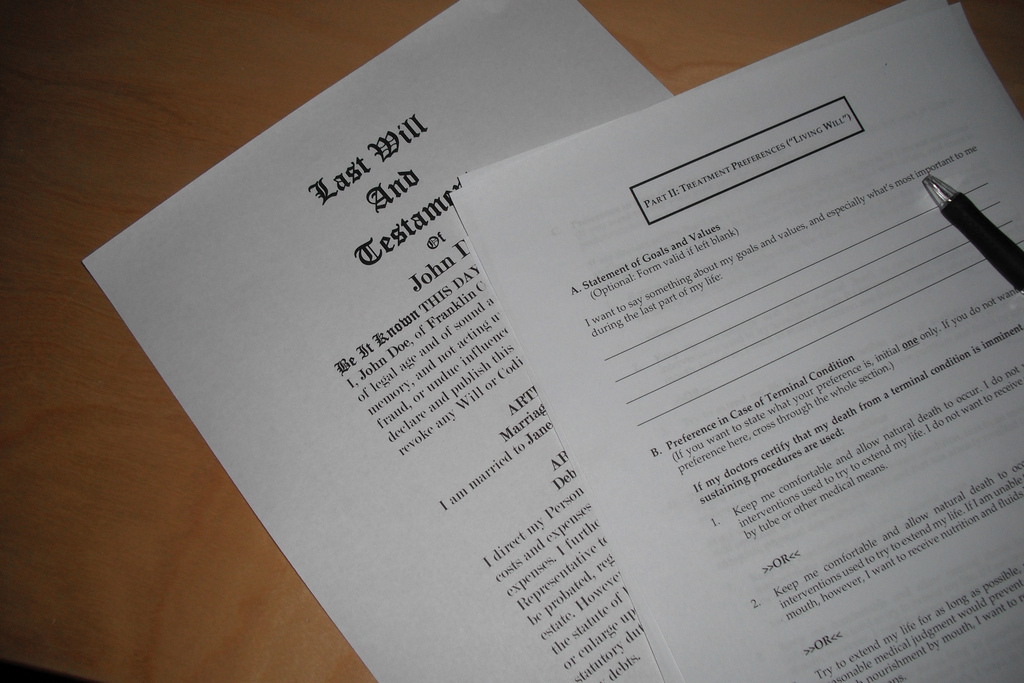
If you or someone you know has been thinking about planning the transference of assets upon death, there are two common options many people decide to pursue.
The will has become known as the “standard” planning method, but another option––the living trust––is quickly becoming a very popular choice among many people today.
In short, the difference between a trust and a living will has mostly to do with probate. If you’re unfamiliar with probate, it’s a court-supervised process designed to protect the rights of both the creditors and the beneficiaries involved and make sure any transfer of assets is organized, planned, and relatively quick.
So, you’re probably wondering what you need to consider to make the right choice for you. Let’ a few factors to think about that will help you make the best decision.
What is a will?
If you’re looking for a court-supervised process, you’ll want to look into creating a will.
In addition to a traditional court process, the typical creditor claims limitation period is usually shorter than that of a living trust. Still, the probate process itself can be considerably time consuming from start to finish––just one reason some pursue the more “dynamic” living trust.
So, what is the probate process?
It boils down to six steps:
1. All parties are notified.
2. An executor is appointed. It’s important to remember that if an executor is not appointed to oversee the distribution process, the court will appoint one for you.
3. All assets are accumulated and accounted for.
4. Claims are paid by creditors. Be aware that any claims not filed by the deadline will generally be barred.
5.Tax return filing. All final income and estate taxes as well as any other final taxes are filed.
6. Residuary estate distribution. After the estate’s debts and taxes are paid and filed, the estate’s executor then distributes the remaining assets among beneficiaries and officially closes the estate.
What are the advantages of a will?
If you’re looking for a court-supervised procedure, the will is the perfect choice. However, the sometimes time-consuming, expensive, and public nature of probate is increasingly turning people toward the living trust––which avoids this process altogether.
What is a living trust?
Also sometimes called a revocable trust, the living trust is a substitute for the traditional will which includes instructions for the management of assets upon death and when funded, during your life as well.
How does it work?
By simply moving assets into a trust during your lifetime, you can serve as its trustee or opt or select another person to fill this role.
If you’d like to avoid the probate process, it’s important to note that the only way to completely avoid it is by making sure all of your assets are placed in the living trust upon your death. If your assets are allowed to pass automatically into this trust upon your death, this also allows you to avoid probate.
A “pour over” will is often drafted to specify in writing how any assets, which were not inside the trust, will be transferred.
What are the other benefits of a living trust?
In addition to possibly avoiding probate, living trusts can be managed in private––unlike a will. Private estate processes often make it more difficult for others to challenge the details of the estate.
Living trusts can also help you manage your finances if you become unable to do so for whatever reason. Well-drawn trusts avoid guardianship issues and the costs that come with them while offering more protection and control than power of attorney.
Who do I go to when I need to draw up my estate?
An attorney experienced in estate planning is the perfect person to go to to ensure your will or living trust reflects your wishes. The laws surrounding estate planning are almost always too complicated to understand without a background in the law.
Depending on the state of your finances you may want to involve financial assistants in the estate process, but these legal documents should always be written and finalized by an attorney.
If you or someone you know is in need of estate planning assistance, contact The Fitzgerald Law Firm today for a free consultation with an experienced Beloit Estate Planning Attorney. We recognize that not everyone is capable of meeting during traditional business hours—let us know a time that’s convenient and we’ll do our best to accommodate you.
Photo credit: Ken Mayer



